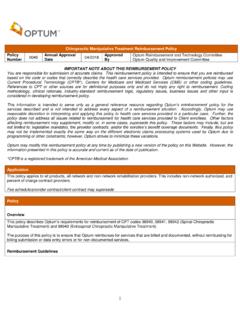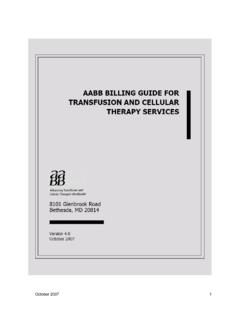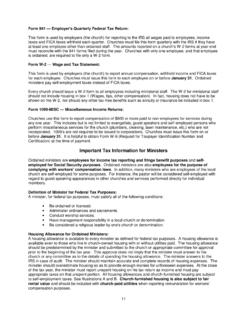Transcription of Employee Cell Phones & Reimbursement
1 Boston Newport Providence Waltham 888-KLR-8557 Employee Cell Phones & Reimbursement KLR Not-for-Profit Services Group January 2013 Cell phone Reimbursement Issues Cell Phones are everywhere. It is hard to imagine living without them today. Consequently, more and more employees are using their cell Phones for business purposes and getting reimbursed for the cost of doing so is becoming an issue. This White Paper will attempt to examine the Employee cell phone issue from a number of vantage points. Some employees may use a cell phone for business purposes for their own convenience. This is different from the company requiring communication with the Employee when that communication must be conducted via a cell phone . For example, for employees who work outside of the office and away from land line Phones , communication with them during normal business hours will usually require that Employee to have a cell phone .
2 So let s assume that some or all of your employees must have access to a cell phone to do their job in an effective and efficient manner. The first thing to consider is whether the company will own the cell phone or ask the Employee to use their own personal cell phone . To Own or Not to Own Owning the cell Phones your employees use for business purposes can allow you to control costs, keep confidential information private and even protect your business legally. But there are often gray areas when it comes to cell Phones , especially if your employees only occasionally use them for business. Many employers opt to reimburse employees for business use on their personal Phones however, that can open you to a lot of risk. Here are some of the considerations involved in owning and not owning employees' cell Phones . To Own When you own the phone you have control over cell phone plan and its costs.
3 If you are controlling the plan your total cell phone costs are less likely to get out of control. The rate plans for businesses typically are available at a lower cost than individual or family cell phone plans. In addition, you can select the type of phone and plan best suited for each Employee s job, so you re paying for just the right amount of voice, data and text services. When you own the employees cell Phones , you also own the phone numbers. If an Employee who has given the number to customers or suppliers leaves the company, you can transfer that number to a new Employee so you don t lose business. If you use cell Phones to transmit data, remember that you have a legal obligation to protect client data. Owning employees cell Phones can allow you to set up passwords and use private applications that aren t visible to the public. The chances of something negative happening from a legal standpoint where your company is liable for data are higher if the employees pick and choose cell carriers and application than if the employer owns the phone , the service and the policy around it.
4 Purchasing cell Phones for your employees can also simplify the tech support if you decide on one platform like Android, iOS or BlackBerry that all employees use. Information technology technicians will be able to construct network and software connectivity and security in a uniform manner, which will minimize the security risks and further protect company data. Not to Own While there are several advantages to owning employees cell Phones , the key issue is whether you have the time and resources to resolve the disadvantages that come with owning cell Phones . Common disadvantages to owning cell Phones include: Personal Use. If you re not comfortable with employees using cell Phones for personal use, Reimbursement might be a better option. It s unrealistic to expect that that employees will use them strictly for work, and, most people don t want to carry around two cell Phones .
5 In addition, some employees may insist upon using a specific type of device rather than using a company phone . Minutes. If the employer owns the phone , there s a chance the Employee could go over his or her allotted minutes because of personal use. To determine whether that s the case, you must go through the bill line by line. Do you really have the time and resources to do this? Management Issues. If an Employee who leaves your business refuses to turn in the company phone , you would have to go to the carrier to deactivate the phone so the former Employee can t use it. The company can then reroute the number to a different Employee but this can also be a time consuming task. Flat Reimbursement for Use of Personal Cell Phones As an alternative to reimbursing employees on a per-use basis for their using their personal cell phone on company business, you might consider requiring employees to own a cell phone and providing them with a set amount of Reimbursement each month.
6 This could be $50 or $100 per month depending on the type of phone and other services that you require the Employee to have access to. If the Employee does not have a suitable cell phone the company might consider financially assisting the Employee to purchase one. Work out an agreement (in writing) saying that the Employee will pay the employer back a certain percentage of the phone s cost if he or she leaves the job within a certain amount of time. Is the Employee Reimbursement Taxable Income? In 2011 the IRS issued guidance to their auditors on this question and summarized their position in Notice 2011-72. Surprisingly, they did not require phone logs (like they do with automobile mileage Reimbursement ) or any other type of accountable plan. When an employer has a substantial business reason for requiring the Employee to maintain a personal cell phone , Reimbursement to the Employee -- even for the full cost of the Employee 's flat-rate plan -- for the use of the phone will not be considered taxable income so long as the Employee 's plan is a reasonable plan for the business need.
7 Of course, this substantial business reason and the plan for Reimbursement should be documented in writing within the company s policies. Notice 2011-72 provides that the IRS will treat the Employee s use of an employer-provided cell phone for reasons related to the employer s trade or business as a working condition fringe benefit, the value of which is excludable from the Employee s income. However, the cell phone must be issued primarily for business reasons. Additionally, any personal use of the employer-provided cell phone will be treated as a de minimis fringe benefit, excludable from the Employee s gross income under 132(e) of the Code. * Please note that this White Paper is a general summary of law and omits many important details, footnotes, and caveats. It is no substitute for informed advice from a tax professional based on your particular circumstances.
8 ABOUT OUR FIRM KLR is one of New England s premier accounting and business consulting firms. With 170 team members and offices in Boston, Newport, Providence and Waltham, KLR provides a wide range of services to both individuals and businesses. Ranked one of the largest firms in New England, KLR s growth and commitment to clients is unparalleled in the industry. KLR has been awarded three Practice Innovation Awards and named one of the Best Places to Work (seven years in a row). Our award-winning firm helps ensure our ability to retain the most talented professionals to support your organization. To learn more about KLR s services, call us or visit our website at This publication contains general information only and is based on the experiences and research of Kahn, Litwin, Renza & Co., Ltd. (KLR) practitioners. Any statements contained herein are not intended or written by KLR to be used, and nothing contained herein can be used, by you or any other person, for the purpose of avoiding penalties that may be imposed under federal tax law.
9 KLR is not, by means of this publication, rendering business, financial, investment, or other professional advice or services. This publication is not a substitute for such professional advice or services, nor should it be used as a basis for any decision or action that may affect your business. Before making any decision or taking any action that may affect your business, you should consult a qualified trusted advisor. KLR, its affiliates, and related entities shall not be responsible for any loss sustained by any person who relies on this publication. Please see for a detailed description of Kahn, Litwin, Renza & Co., Ltd. Copyright 2012 (reissued) Kahn, Litwin, Renza & Co., Ltd. All rights reserved.






